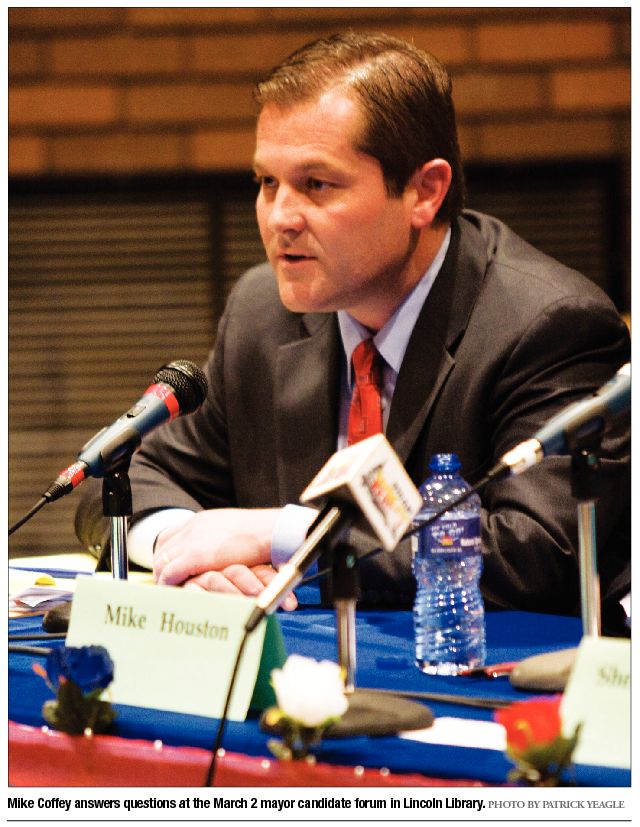
Who will bring Springfield toether?
Budget reality And there is the crux of the problem: there is no money for much of anything. Under the direction of Mayor Frank Edwards, the city passed a budget in February with about a $1 million reserve. During budget discussions with the city council, Edwards characterized that sum as inadequate, pointing to the likelihood of the city’s bond rating being lowered due to limited reserve funds.
Indeed, in early March, Moody’s Investor Services, a credit analyst company, lowered the city’s bond rating one notch, meaning any future borrowing by the city will likely carry a higher interest rate. Add to that an expected $4 million budget deficit in the
next fiscal year because of a deferred debt payment, along with the fact that total city revenues this fiscal year have come in about $5.3 million behind last year and about $8.2 million behind what was estimated. It seems increasingly likely that there will be very little money – if any – to pay the up-front and incidental costs that often arise from projects that could eventually save the city money and build up the city’s economy and communities.
Though the candidates all say streamlining government will yield savings, no one has offered specific numbers or even estimates of how much could be saved.
Meanwhile, each of the candidates says he or she will not raise taxes. Out of all the promises made in this campaign, that may prove the hardest to keep.
Still, the decisions of the next mayor will set the tone for development far beyond the end of his or her four-year term, even if the city’s highest hopes don’t come to fruition. Uniting the city will require both leadership and vision for a stronger, more beautiful and more equitable Springfield.
Contact Patrick Yeagle at [email protected].